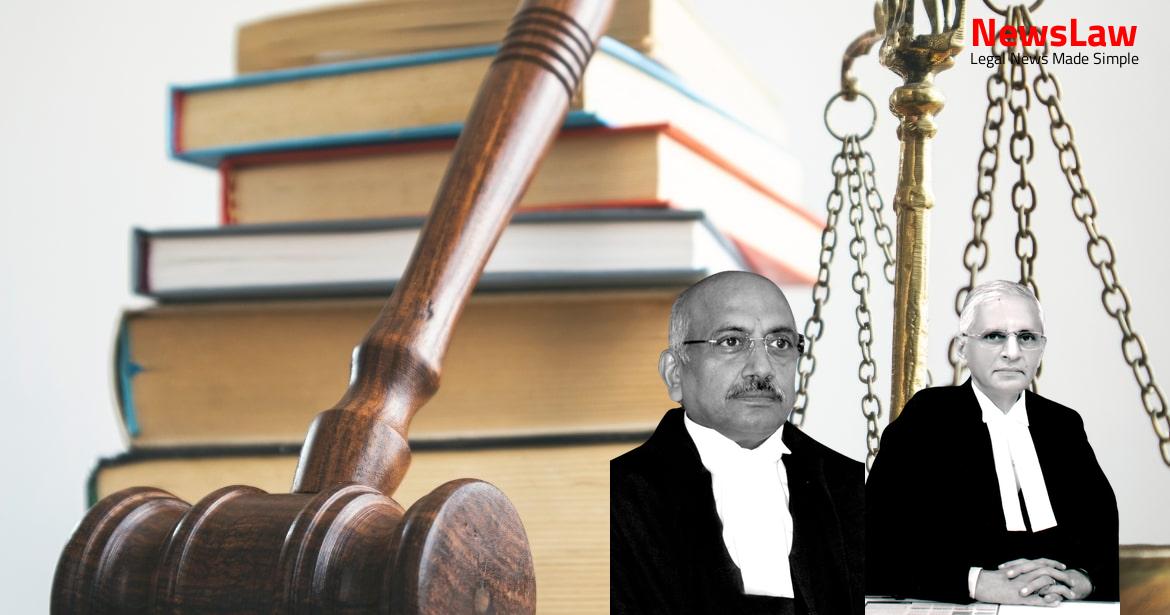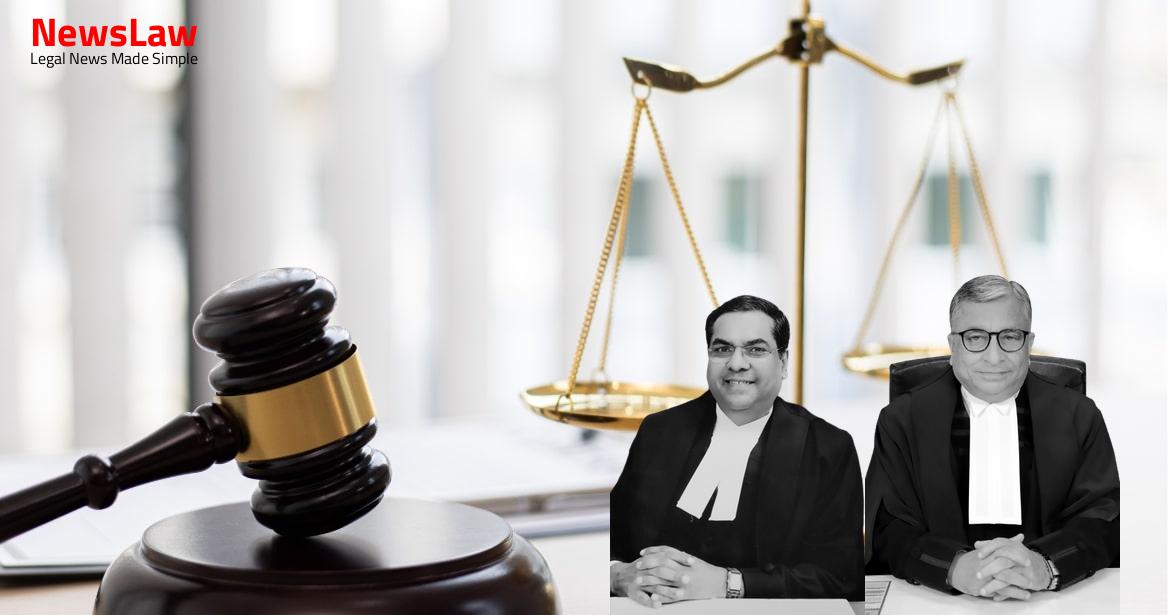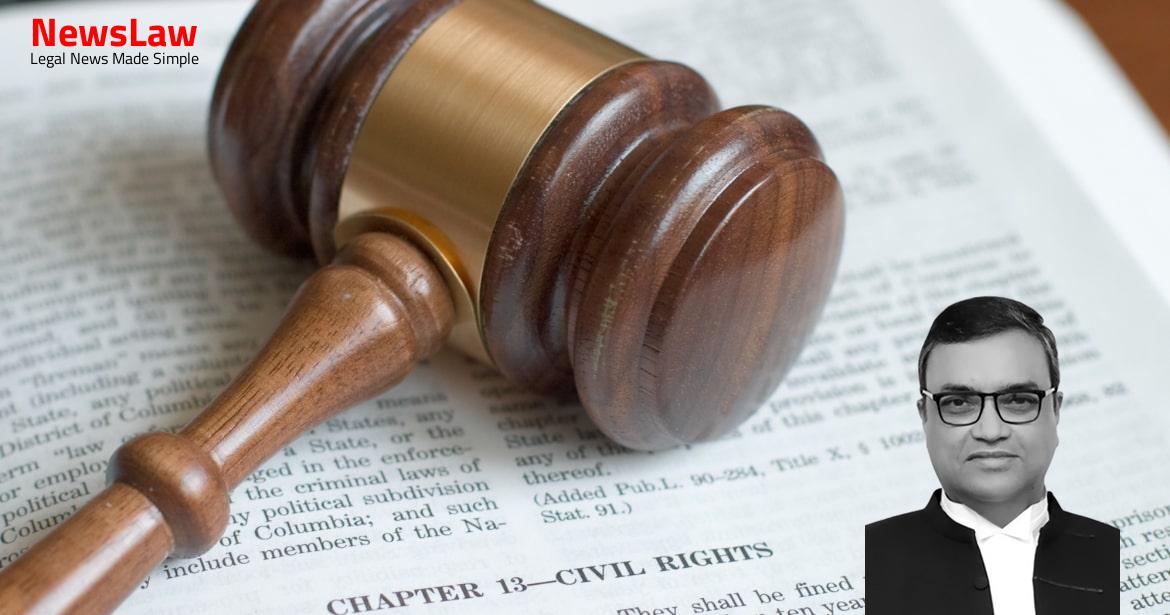In a recent legal case concerning a dispute over a land transaction, the court delved into the complexities of determining whether the agreement was a mortgage by conditional sale or an outright sale. The analysis focused on key elements such as the debtor-creditor relationship, document clauses, and the nature of the transfer as security for the debt. This blog explores the court’s legal analysis in detail, shedding light on the nuanced interpretation of property law in such cases.
Facts
- The plaintiff borrowed Rs.3,000 from defendant No 1 on 22.2.1969 by executing a document titled ‘conditional sale deed’ as security for the loan amount.
- Plaintiff requested defendant No 1 to reconvey the suit land by accepting the loan amount of Rs.3,000 but was refused.
- Defendant No 1 transferred the suit land to defendant No 2 on 25.2.1989.
- Plaintiff filed a suit on 5.4.1989 under the Transfer of Property Act, 1882 for redemption of the mortgaged property and possession.
- The claim is that the transaction dated 22.2.1969 was a mortgage disguised as a conditional sale.
- The High Court found that there was no proof of the plaintiff tendering the amount within the stipulated period for re-conveyance.
- The Court of Appeal stated that the key distinction between conditional sale and mortgage is the debtor-creditor relationship and the nature of the transfer as security for the debt.
Also Read: Interpretation of Will and Hindu Succession Act: Legal Analysis
Analysis
- In cases where there are contemporaneously executed documents, the intention of the parties is crucial in determining whether the agreement is a mortgage by conditional sale.
- The existence of a debtor and creditor relationship is essential for an agreement to qualify as a mortgage by conditional sale.
- A transaction may outwardly appear as a sale but could be construed as a mortgage based on the essence of the documents.
- The benefit of Section 58(c) of the Act does not apply if the document of reconveying the property is not part of the same document as the sale.
- The High Court’s decision regarding whether a transaction is an outright sale or a mortgage by conditional sale depends on the specific circumstances of each case.
- The nature of the transaction and the terms of the document play a significant role in determining whether a transaction is a mortgage by conditional sale.
- The judgment does not support the defendants’ argument as the document clearly indicates a loan borrowed by the plaintiff with a request for re-conveyance upon repayment, which was refused by defendant No.1.
- Reference to the Sopan case where a conditional sale agreement was deemed not a mortgage due to separate documents for sale and repayment, not falling under Section 58(c) proviso.
- Analysis of the document in question, Ex. 68, reveals a borrowing of Rs. 3000 for household expenses with a clause for retransfer of land upon repayment within one year, indicative of a mortgage by conditional sale.
- The suit for redemption can be filed within 30 years from the redemption date; defendants may not claim more than the mortgage amount without proof of improvements.
- The execution of a ‘mortgage by conditional sale’ for Rs. 2500, with the plaintiff receiving less, indicated the intent was not a mortgage deed but a conditional sale.
- The court dismissed the defendant’s appeal, upholding the redemption decree based on the document clauses evidencing a conditional sale with an option to repurchase.
- In the absence of consideration of precedential judgments like Umabai and Tulsi, the Vanchalabai case’s precedent was deemed non-binding.
- Evaluation of Section 63 and Section 58(c) provisions to ascertain the nature of the agreement based on property valuation, transaction value, and reconveyance duration.
- Interpretation of the document as a whole to discern the intent of the parties when executed; absence of creditor-debtor relationship elements in the document.
- The mortgagee may incur costs for property preservation or improvement, but in the absence of specified conditions in the document, the mortgagor is not liable for such expenses.
- Criteria for expenditures by a mortgagee for property preservation and improvements to be added to the principal amount due, if necessary for property maintenance or renewal.
Also Read: Legal Analysis of Pujaris’ Rights in Temple Land Ownership
Decision
- The order of the First Appellate Court accepting the appeal of the defendants and dismissing the suit for redemption is deemed not sustainable in law.
- The same applies to the order passed by the High Court.
- The judgment and decree passed by the First Appellate Court and the High Court are set aside.
- The suit is decreed, allowing the plaintiff to pay or deposit the mortgage amount within three months of receiving the order.
- The appeal is allowed with no order as to costs.
- The period of 30 years would commence on 22.2.1969, and the suit filed in 1989 falls within the period of limitation.
Also Read: Land Compensation Redetermination Case
Case Title: BHIMRAO RAMCHANDRA KHALATE (DECEASED) THROUGH LRS. Vs. NANA DINKAR YADAV (TANPURA) (2021 INSC 400)
Case Number: C.A. No.-010197-010197 / 2010



